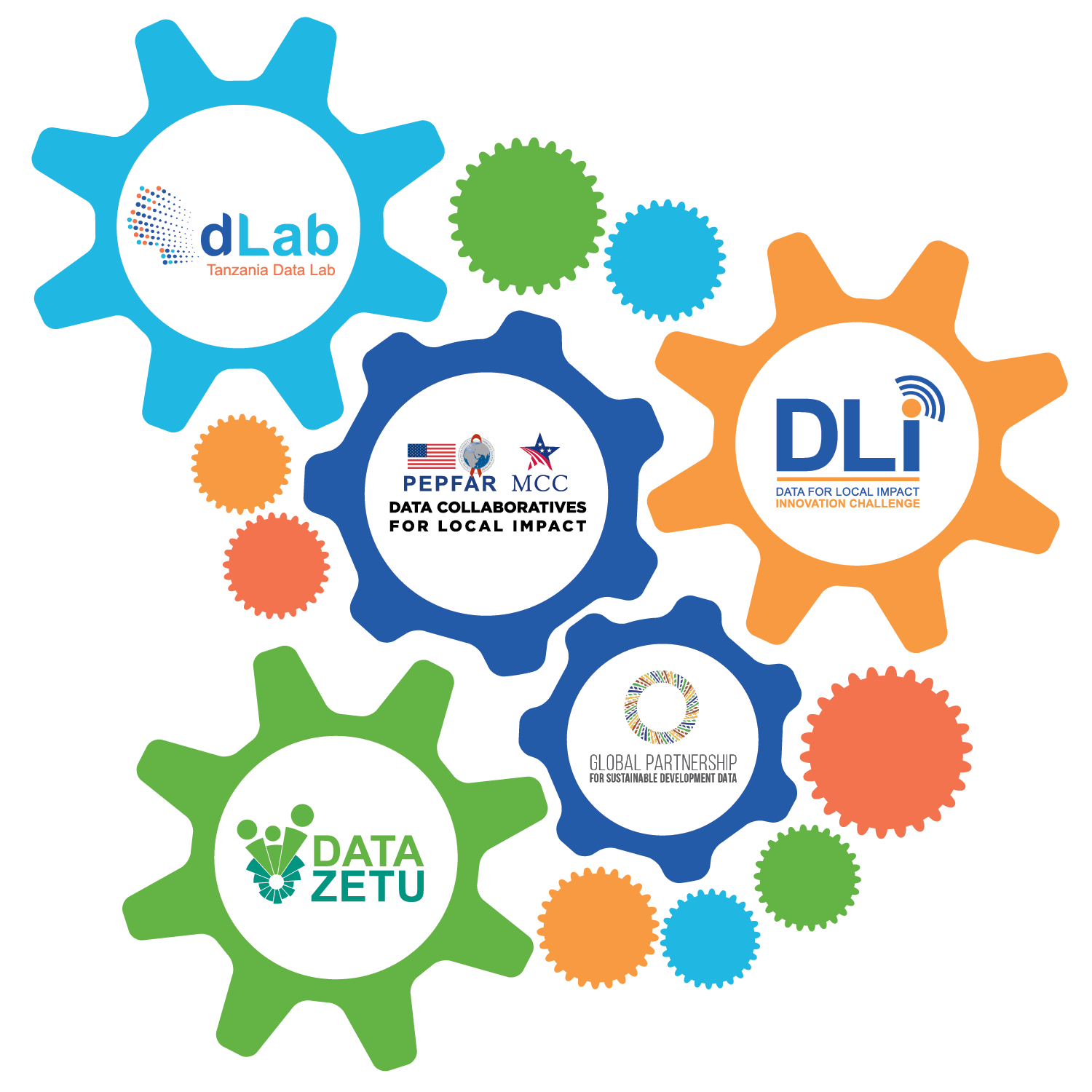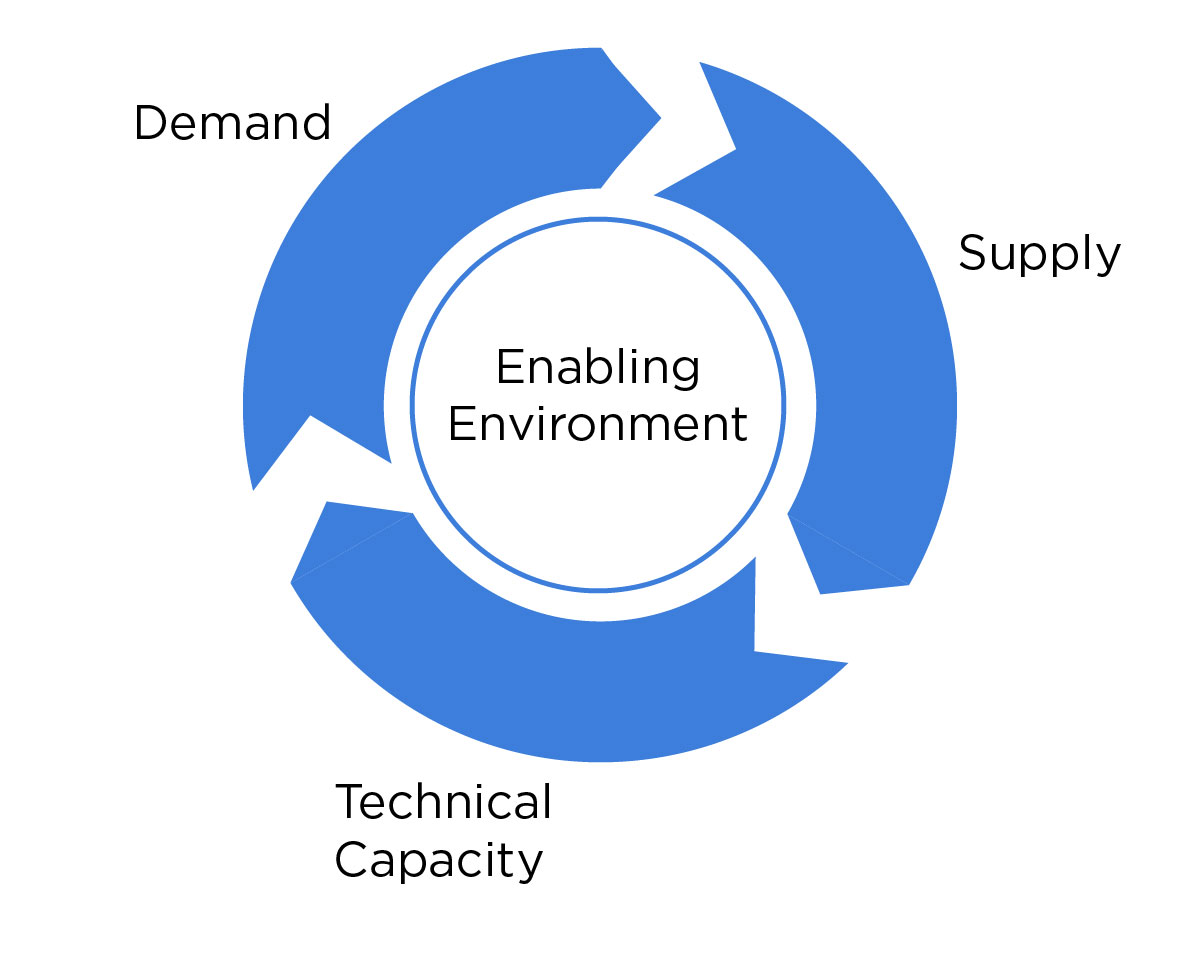- Value: $21.8 million
- Mechanism: Interagency MOA
- Countries: Tanzania and Côte d'Ivoire
- Funding: PEPFAR
- Oversight: MCC
- Implementation: Country-led
The Problem
The data revolution is creating an abundance of multi-sector, real-time, citizen-generated, georeferenced, and big data. Government, non-government organizations (NGOs), program implementation partners, and civil society in MCC and PEPFAR partner countries need the skills to leverage this new and increasingly complex resource to inform policy-making, decisions and actions. Countries need this capacity to strengthen their services, augment citizen engagement, make the most of scare resources, and more cost-effectively drive their own goals and priorities for achieving sustainable development.
An Interagency Response
In 2015, the United States President’s Emergency Plan for AIDS Relief (PEPFAR) and the Millennium Challenge Corporation (MCC), entered into a $21.8 million partnership to create the Data Collaboratives for Local Impact (DCLI) program. DCLI seeks to improve the capacity of individuals, communities and organizations to use data to solve problems relating to HIV/AIDS, global health, gender equality, and economic growth. As a result, DCLI supports PEPFAR programming including priorities that result from PEPFAR Sustainability Index Dashboards (SID) and Country Operational Plans (COPs). DCLI also enhances policies and programs; drives innovation; optimises use of US tax payers’ funds and countries’ own resources; and increases transparency, accountability and results.PEPFAR is providing the funding and MCC has overseen the design and implementation of the DCLI program. The program aligns with broader U.S. government efforts to maximize the effectiveness of U.S. foreign assistance and with the efforts of the Global Partnership for Sustainable Development Data Partnership to promote data collaboration to achieve the Sustainable Development Goals (SDGs).
Benefits of Harnessing the Data Revolution for Sustainable Development
As a global community, it is essential that development organizations use the data they have to drive decision-making, promote mutual accountability and transparency, and ensure that their efforts have a clear and deliberate impact on sustainable development. An abundance of data exists, and the collective challenge and opportunity is to make it open, understandable, and actionable. Data helps to highlight and prioritize opportunities for collaboration among global, national, and subnational stakeholders to achieve specific development targets, local impact, and most importantly, improve lives. Data in sub-Saharan Africa remains constrained, particularly at the subnational level. This is where development needs are often greatest, yet capacity to use data to inform, drive and measure development is most limited.Country-Based Design and Implementation

Source: MCC
MCC’s Expertise in Data
MCC has developed extensive experience setting up country-led programs and using data to inform decision-making for better outcomes. MCC is a leader in data transparency, ranked as the the most transparent aid organization in the world according to Publish What You Fund’s 2022 Aid Transparency Index.MCC is committed to ensuring that the data revolution enables more inclusive growth, innovation, and participation by communities that have pressing development needs and could benefit from greater capacity to use data and technology.
PEPFAR’s Expertise in Data
PEPFAR is using and sharing data for greater transparency, accountability, and impact. To do the right things in the right places right now, PEPFAR is using data to strategically target geographic areas and populations with the highest HIV burden to accelerate progress toward epidemic control.PEPFAR is also opening its data through the PEPFAR Dashboards, enabling all to view, download and utilize PEPFAR data to optimize program effectiveness and foster mutual accountability. PEPFAR is committed to putting data at the center of decision-making and achieve the greatest impact for investments toward achieving an AIDS-free generation.

